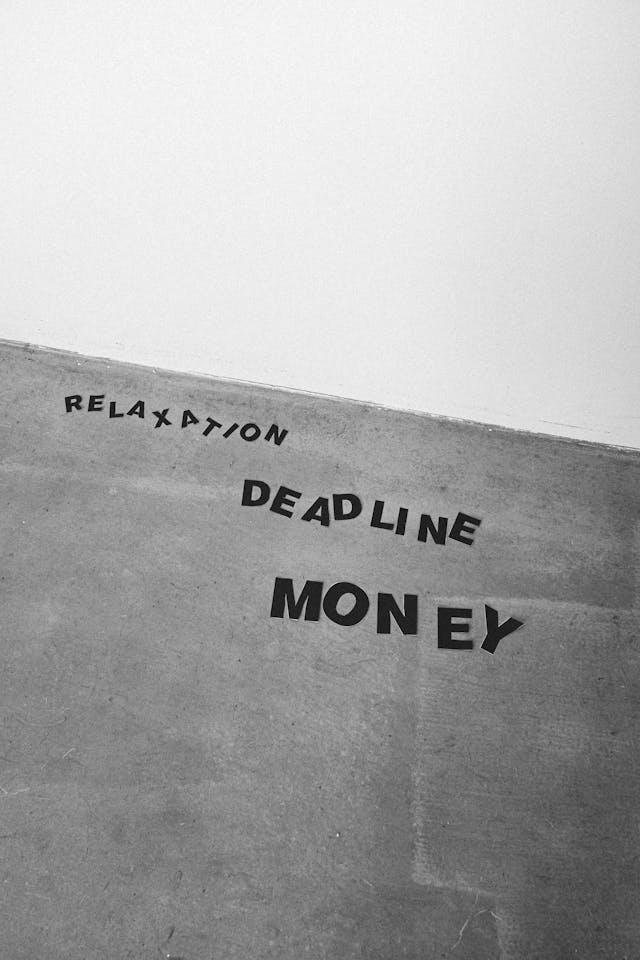In today’s fast-paced world, work-related stress is an all-too-common experience. Whether you’re juggling multiple projects, dealing with demanding clients, or navigating the complexities of remote work, stress can take a significant toll on your physical and mental well-being. But, the good news is that there are effective strategies you can implement to reduce stress and cultivate a more balanced, fulfilling work-life. In this comprehensive guide, we’ll explore various techniques to manage and alleviate work-related stressors and provide actionable tips for relieving tension and anxiety after work.
Understanding Work-Related Stress
Work-related stress arises when the demands of your job exceed your capacity to cope. Common stressors include long hours, high workloads, tight deadlines, and conflicts with colleagues or supervisors. Over time, chronic stress can lead to burnout, characterized by emotional exhaustion, depersonalization, and a sense of reduced accomplishment. Addressing work-related stress is crucial not only for your health but also for your productivity and job satisfaction.

Effective Strategies to Manage Work-Related Stress
- Prioritize and Organize Tasks
- Task Management: Break down large projects into manageable tasks and prioritize them based on urgency and importance. Tools like to-do lists, planners, or digital apps (e.g., Trello, Asana) can help you stay organized.
- Time Management: Allocate specific time slots for focused work, meetings, and breaks. The Pomodoro Technique, which involves working in 25-minute intervals followed by short breaks, can enhance productivity and prevent burnout.
- Set Realistic Goals
- Establish clear, achievable goals for yourself and your team. Avoid setting overly ambitious targets that can lead to unnecessary stress. Celebrate small victories to maintain motivation and a positive outlook.
- Improve Communication
- Effective communication with colleagues and supervisors can help manage expectations and reduce misunderstandings. Practice active listening, provide constructive feedback, and seek clarification when needed.
- Create a Supportive Work Environment
- Foster a positive workplace culture by building strong relationships with coworkers. Engage in team-building activities and seek support from peers or mentors when facing challenges.
- Practice Mindfulness and Relaxation Techniques
- Mindfulness meditation, deep breathing exercises, and progressive muscle relaxation can help reduce stress and improve focus. Apps like Headspace and Calm offer guided sessions tailored for workplace stress.
- Take Regular Breaks
- Short, frequent breaks can prevent mental fatigue and maintain productivity. Step away from your desk, stretch, or take a walk to refresh your mind and body.
- Maintain a Healthy Work-Life Balance
- Set boundaries between work and personal life. Avoid checking work emails or taking calls outside of working hours. Engage in hobbies and activities that bring you joy and relaxation.
- Seek Professional Help
- If work-related stress becomes overwhelming, consider seeking support from a mental health professional. Therapy or counseling can provide valuable coping strategies and emotional support.

Effective Techniques to Relieve Tension and Anxiety After Work
- Physical Exercise
- Regular physical activity is one of the most effective ways to reduce stress and improve mood. Exercise releases endorphins, which are natural mood lifters. Whether it’s a brisk walk, yoga, or a workout at the gym, find an activity that you enjoy and make it a part of your routine.
- Mindfulness and Meditation
- Practicing mindfulness and meditation can help calm your mind and reduce anxiety. Set aside a few minutes each day for deep breathing exercises, guided meditation, or simply sitting in a quiet place and focusing on the present moment.
- Engage in Creative Activities
- Creative pursuits such as painting, writing, playing a musical instrument, or crafting can be a great way to unwind and express yourself. These activities can divert your mind from work-related stress and provide a sense of accomplishment.
- Spend Time in Nature
- Nature has a soothing effect on the mind and body. Spend time outdoors, whether it’s in a park, by the beach, or in the mountains. Activities like hiking, gardening, or simply walking in nature can help you feel more grounded and relaxed.
- Connect with Loved Ones
- Social support is crucial for managing stress. Spend quality time with family and friends, engage in meaningful conversations, and share your thoughts and feelings. Building strong connections can provide a sense of belonging and support.
- Practice Gratitude
- Focusing on positive aspects of your life can shift your mindset from stress to appreciation. Keep a gratitude journal and write down things you are thankful for each day. This practice can enhance your overall well-being and reduce stress.
- Establish a Relaxing Evening Routine
- Create a calming evening routine to signal to your body that it’s time to unwind. This could include activities like reading, taking a warm bath, listening to soothing music, or practicing gentle yoga stretches.
- Limit Screen Time
- Excessive screen time, especially before bed, can interfere with sleep and increase stress. Set boundaries for screen use, particularly with work-related devices. Instead, engage in offline activities that help you relax.
- Get Sufficient Sleep
- Quality sleep is essential for managing stress and maintaining overall health. Establish a regular sleep schedule, create a comfortable sleep environment, and practice good sleep hygiene to ensure you get adequate rest.
- Seek Professional Support if Needed
- If stress and anxiety persist despite your efforts, consider seeking help from a mental health professional. Therapists can provide personalized strategies and support to help you manage stress effectively.

Conclusion
In a world that demands so much from us, it’s essential to take proactive steps to manage work-related stress. By prioritizing tasks, setting realistic goals, fostering a supportive work environment, and practicing mindfulness, you can significantly reduce stress and enhance your overall well-being. Additionally, engaging in physical exercise, creative activities, and spending time in nature can help relieve tension and anxiety after work.
Remember, managing stress is a continuous process that requires attention and effort. Implementing these strategies can lead to a healthier, more balanced life where you can thrive both professionally and personally.
Browse Nomadify’s website to learn about coping strategies and alternative therapies that may interest you.
Find below links to mental health support services in the UK and USA.
https://firstchoiceservices.org (USA)
Crisis services and planning – Mental health (UK)
Love Life x
References
- American Psychological Association. (2019). Stress in America 2019. https://www.apa.org/news/press/releases/stress/2019/stress-america-2019.pdf
- Mayo Clinic. (2021). Job stress: Tips to reduce and manage workplace stress. Retrieved from https://www.mayoclinic.org/healthy-lifestyle/adult-health/in-depth/job-stress/art-20043888
- Harvard Health Publishing. (2018). Stress management: Enhance your well-being by reducing stress and building resilience. https://www.health.harvard.edu/mind-and-mood/stress-management-enhance-your-well-being-by-reducing-stress-and-building-resilience
- National Institute for Occupational Safety and Health. (1999). Stress at Work. https://www.cdc.gov/niosh/docs/99-101/default.html
- Mindful. (2020). How to Meditate. https://www.mindful.org/how-to-meditate/
- American Heart Association. (2018). The importance of managing stress. https://www.heart.org/en/healthy-living/healthy-lifestyle/stress-management/the-importance-of-managing-stress

